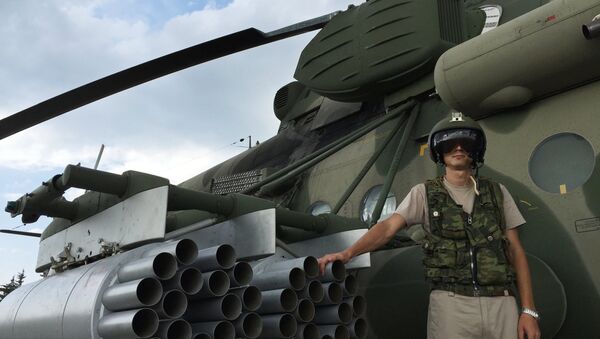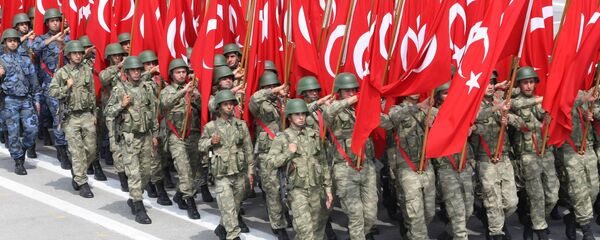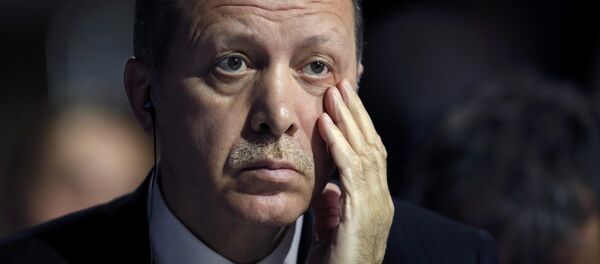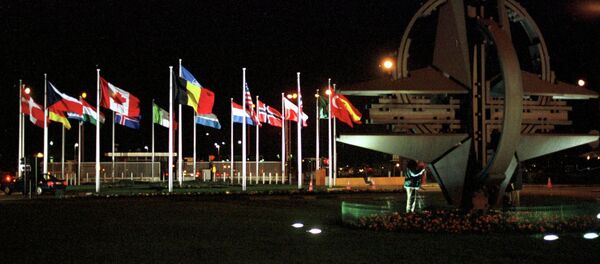"Until now, Hollande has acted more like a nervous vassal of the United States than the leader of a proud, independent people," the Canadian academic remarks, asking rhetorically in his article for Strategic Culture Foundation: "Is the French president trying to break free from his US suzerain?"
Entering the Syrian conflict, Moscow has faced challenges; not only from the notorious Daesh militants but also from the Islamists' hidden sponsors.
First, the Russian Airbus 321 was blown up by a terrorist bomb over the Sinai Peninsula on October 31, and about three weeks later a Russian Su-24 bomber was shot down by a Turkish F-16 fighter jet, testing Moscow's mettle in the Middle East.
However, the Kremlin has not lost its nerve. In the wake of the treacherous attack, the Russian leadership stated clearly: there would be no war with Turkey.
Make no mistake, the Canadian academic remarks, "the Turkish ambush on the Russian fighter jet was a premeditated act of war." And Turkey knew it perfectly well, Professor Carley adds, referring to the fact that Ankara "ran to hide in the skirts of their NATO allies", fearing Russia's potential retaliation.
"Turkish president Recep Tayyip Erdogan must have thought that by shooting down the Russian plane he could stop the talk by Hollande and others of an anti-IS alliance with Russia and prevent any reprisals from Moscow," the professor suggests.
But that is not all. Citing American journalist John Batchelor, the professor notes that Washington had forwarded the coordinates of the Russian Su-24 to Ankara. The ambush was preplanned, and US F-16s were reportedly in the air to back the Turks.
However, "neither Erdogan nor Obama succeeded in stopping the momentum toward Franco-Russian cooperation," Professor Carley notes, adding that two days after Turkey's ambush, Hollande went to Moscow to discuss the future of the anti-Daesh alliance.
"Once out of Obama's Washington spider web, Hollande appears to have manned up enough to agree with Putin on various measures to destroy the IS (ISIL/Daesh) in Syria. Time will tell if Hollande means what he says. If he does, it will signal the end of French support for the Jihadist movement against the government of President Bashar al Assad, and an end also to French vassalage to the United States. It sounds too good to be true, but if a real Franco-Russian alliance develops, it may offer some hope for the future," Professor Carley underscores.
"Success against IS (ISIL/Daesh) obviously depends on much more than Franco-Russian cooperation. NATO is a big problem, amongst others. NATO is the bullwhip which the United States uses to keep Europe in line. Do Europeans want war with Russia, now the mainstay of the fight against IS in Syria, in order to support Turkey, a key IS ally? Do Europeans want to become IS allies in effect?" Professor Carley asks.
If it is true that there were US Air Force F-16s in the air on November 24 to assist the Turkish jets in the event of possible Russian retaliation, it means that Obama has no scruples about starting a direct conflict with Russia, the Canadian academic underscores.
"Just how deep into evil's pit is Obama willing to descend? Only the Europeans can discourage the apparent US will to war against Russia. They need to find the courage to say to Obama: 'Mr. President, you are out of your mind. Regain your sanity before it's too late. IS is the enemy; Russia is our ally'," Michael Jabara Carley concludes.




